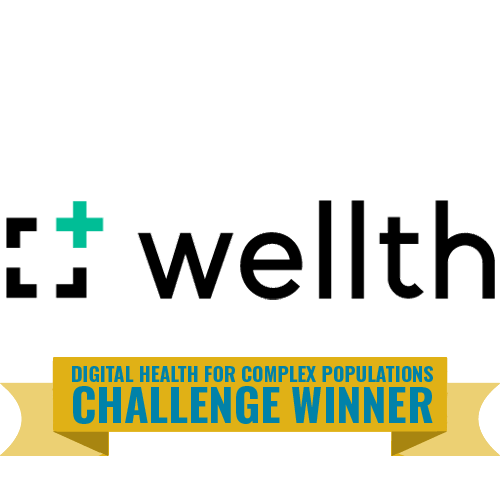- Core Functionality: Consumer engagement/ behavior change,Disease management,Medication adherence
- Target Populations: People with multiple chronic conditions,Elderly,Medicaid beneficiaries,Medicare beneficiaries,People with behavioral health needs,People with substance use disorders,Frequent emergency department users,Pregnant women
- Users: Behavioral health providers,Care team members (e.g., social workers, care managers),Medical providers,Patients/ consumers,Payers (e.g., states, health insurers/MCOs)
Product Description
Wellth promotes behavior change for patients with chronic behavioral and physical health conditions. Using a “behavioral economics engine” through its smartphone-based design, Wellth have achieved an over 89 percent average daily adherence in previously nonadherent, comorbid populations.
Wellth uses daily financial incentives through its Medication Adherence Rewards Program, which motivates and empowers individuals diagnosed with chronic health conditions to adhere to their daily medications and health behaviors. Daily, members earn financial incentives for verifying adherence to prescribed care plan behaviors. Members are eligible to receive up to $30 a month for verifying adherence, but lose $2 from their balance for each day they miss a check-in. Most members we serve are Medicaid or dually eligible for Medicare and Medicaid and have historically failed to engage with typical disease management programs. Our pricing is outcomes-based, meaning we only get paid if patients enroll and are 80 percent or more adherent with Wellth.
Results
Wellth has achieved over 89 percent average daily adherence across all of its implementations — including previously nonadherent, Medicaid-eligible, and comorbid populations. In addition, it has demonstrated improvement in clinical outcomes through quality metrics measured by our partner healthcare organizations as well as through a Randomized Controlled Trial.
Quality metrics measured by our partner organizations include an average HbA1c reduction of 1.29 in a poorly controlled type 2 diabetes population, an average HbA1c reduction of 1.0 in an elderly and poorly controlled type 2 diabetes population, a 57 percent reduction to 30-day readmissions, and a 100 percent follow-up appointment attendance rate in the enrolled cohort.
Clinical outcomes measured by the randomized controlled trial include a 45 percent reduction to 90-day readmissions for post-discharge patients diagnosed with acute myocardial infarction (13 percent readmission rate in the intervention group vs. 24 percent in the control group, p=0.17).
Select Partnerships
Wellth has implemented commercial programs with 15+ provider and insurer partners to improve care plan behaviors for type 2 diabetes, cardiovascular disease, congestive health failure, asthma/COPD, behavioral health, HIV, substance use disorder, and gestational diabetes. Our clients include Medicaid MCOs, providers, and community-based organizations — such as Healthfirst, WellCare, Centene, Mount Sinai Health System, Coordinated Behavioral Care, and RiverSpring Health.
Wellth is a winner of CHCS’ Digital Health Challenge. Made possible by Kaiser Permanente Community Health, these competitions encouraged start-ups, entrepreneurs, and other digital health innovators to design tools that meet the needs of low-income individuals with complex needs.
Company Profile
Updated: July 2018
The Digital Health Products for Complex Population database is provided for general informational purposes only. Products are presented without any guarantee regarding accuracy or completeness. Users of this database are responsible for independently verifying all information. Inclusion of any company, service, or product in this database does not imply endorsement by the Center for Health Care Strategies. CHCS makes no effort to verify information on websites linked to outside of www.chcs.org.





